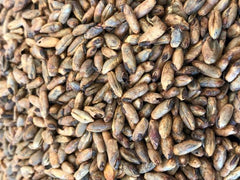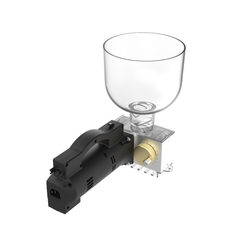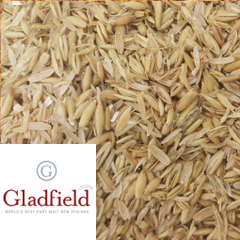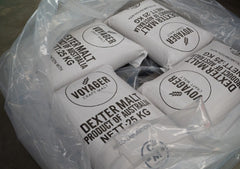The Grain Bill
5 products

- GROWN IN AUSTRALIA COOPERS , Joe White Maltings Blue Lake Milling, Barrett Burston Milling
- GROWN IN NEW ZEALAND Grain: Gladfield
- GROWN IN U.S.A Briess
- GROWN IN EUROPE BestMalz, Dingemans, Weyermann
- GROWN IN U.K /Ireland Grains: Simpsons, Bairds, Thomas Fawcett,
QUICK SELECTION POPULAR BASE MALTS
QUICK SELECTION ROASTED AND COLOURED MALTS
QUICK SELECTION SPECIALTY MALTS/ rye, corn
QUICK SELECTION DISTILLERS MALTS
PLEASE NOTE: We are very happy to mill your grain at no charge. However if you wish to pick up grain personally from our store, milled freshly for you, then please phone your order to 0755940388, text to 0419712557 or email jayne@ibrew.com.au the day before collection so we can have it ready for you. We are not able to mill on walk in demand.
Base Malts: Pilsner, Lager and Ale.
The major base malts are Pilsner, Lager, and Traditional ale. Vienna and Munich malts are also used as specialty malts with other base malts. Munich malt adds extra malt flavour, while Vienna malt adds a toasty flavour. For example a standard pilsner recipe is 85% pilsner malt, 10% Munich malt and 5% Carapils.
Base malts provide the BULK of fermentables in all grain mash recipes. In brewery terms this is called ‘the grain bill’. In this process the grain must first be mashed to convert the unfermentable malt starches to fermentable malt sugars. If adding base malt to a kit beer, 400 to 500 grams is a good amount to add. For a pilsner try several hundred grams each of pilsner and light Munich malts, for a deeper coloured lager try straight Munich malt. Vienna malt adds a nice toastiness to both lagers and ales, especially amber ales
Caramel Malts
The most well known caramel malts are Crystal malt and Carapils. (Carapils is a dextrin malt which is a very pale caramel malt) During malting the starches in caramel malts have been turned to sugar and caramelised. Caramel malts add body and mouthfeel along with flavour and colour. In an all grain beer caramel malts generally make up 5 to 10% of the grain bill.
If adding caramel malts to a beer kit made up to 22 litres, this is about 200gm to 350 grams.
Along with the range of colouored malts these are the easiest grains to start with because they simply need to be infused (not mashed) in hot water to extract their colour and flavour.
Coloured Malts
The main coloured malts are chocolate malt and roasted , or black patent malt. Coloured malts provide only colour and flavour, they do not provide any fermentables. Chocolate malt is used in varying proportions in many darker styles, both ales and lagers.
Roasted barely is the signature ingredient in many stouts and porters.
Depending on the kit concerned and what you are after, additions of 100 to 200 grams of coloured malt are typical. Caramel and coloured malts are quite often used together.
Other grains
Many other grains are used in brewing. For example unmalted barley, malted and unmalted wheat and rye, oats, corn and rice. Unmalted grains must be mashed with barley malt, usually half and half with pilsner malt. The easiest way to use unmalted grains is in flaked form, otherwise they need to be cooked before mashing.
Although wheat malt contains sufficient enzymes to convert the starch, it does not have a husk which makes the physical handling difficult, especially sparging and lautering.
Generally wheat malt is mashed in equal proportions with pilsner or lager malt





